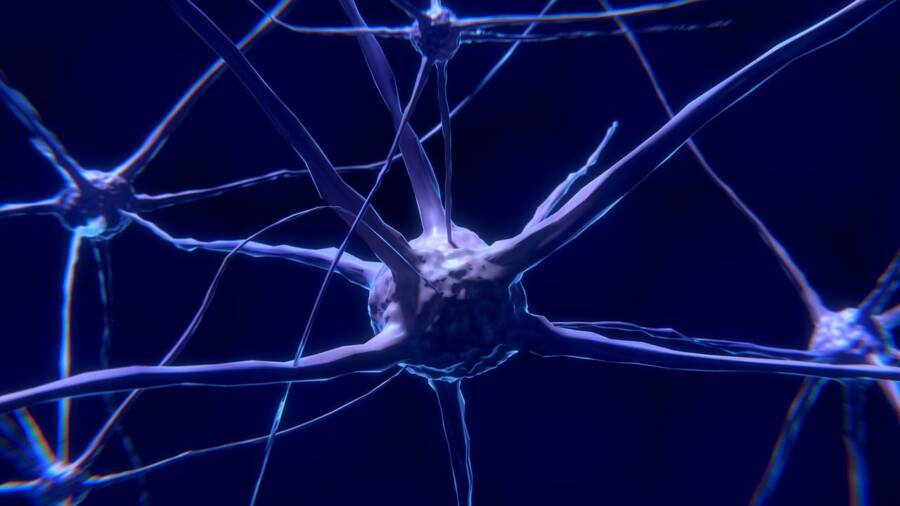The man reportedly felt like he was living the same day on repeat. Doctors say this "Groundhog Day Syndrome" is a rare neurological disorder that is often connected to Alzheimer's Disease.

Colin Behrens/PixabayAn artistic rendition of the brain’s neurons firing.
A man in his 80s reportedly experienced a rare symptom of Alzheimer’s disease, one that makes a person feel like they are living in real-life Groundhog Day.
Doctors say the unidentified man suffers from an extreme case of Déjà Vécu, a feeling that new events are reoccurring and identical to past experiences.
Doctors first became aware of the man’s ailments after he came to see them. He complained that his eBook was providing him with the same reading material every day and that his television relayed the same news broadcast whenever he turned it on.
“Every day is a repeat of the day before… Every (television) session is identical,” the man stated to doctors, as reported in a British Medical Journal Case Report. “Wherever I go, the same people are on the side of the road, the same cars behind me with the same people in them… the same person gets out of the cars wearing the same clothes, carrying the same bags, saying the same things…nothing is new.”
Doctors performed several tests on the man and found that he showed signs of Alzheimer’s disease, a neurodegenerative disease that impacts memory and other mental functions.
Although Déjà Vécu is rare, IFLScience reports that doctors have reported cases as far back as 1896 in relation to Alzheimer’s Disease and to other diseases.
One early case describes a soldier with cerebral malaria who felt like he had lived his entire life before and that everything from the news to his own brother’s wedding was on repeat.
In other cases, people with temporal lobe epilepsy, traumatic brain injury, or schizophrenia experienced Déjà Vécu. Interestingly, according to Live Science, at least one person experienced Déjà Vécu after taking 5-hydroxytryptophan, a drug that converts to serotonin in the body.
Unfortunately, this disease is often progressive and debilitating. In one case report from 2021, doctors describe how the disease can lead to a slippery slope.
“The condition is typically complicated by the development of recollective confabulation, i.e. the tendency of making up stories to furnish one’s predicament (i.e. the delusional conviction that one has actually lived one’s life before) with seemingly logical explanations,” researchers wrote. “Ensuing conflicts with one’s social environment and a failure to fulfill professional, social, and domestic demands may yield secondary pathology such as a depressive disorder or psychosis.”
Currently, there is no cure for Alzheimer’s Disease or Déjà Vécu. Doctors speculate that both conditions impact the hippocampus, the part of the brain responsible for creating and storing memories.
In the case of the older man, brain scans showed low activity in the left temporal lobe, a region of the brain responsible for encoding memory, and the frontal lobes, areas dealing with higher-level cognition. Abnormalities were more pronounced on the right than on the left.
Doctors also tested his cerebrospinal fluid (CSF), a fluid surrounding the brain and spinal cord, and found that he had a low level of the protein amyloid beta-42 and a high level of tau protein. This is typical of individuals with Alzheimer’s disease.
With their diagnosis, doctors enrolled the man in immunotherapy trials, but he did not show signs of improvement. Doctors monitored him for four years and watched as the Alzheimer’s progressed and his delusions became more “pervasive and bothersome,” the BMJ reports.
Now, doctors are hoping that further neurological testing on similar patients will finally identify a treatment that can provide some relief to those suffering from neurodegenerative diseases.
After reading about the man living in Groundhog Day, dive into another neurological condition called exploding head syndrome (EHS). Then, read about the rare Foreign Accent Syndrome, a neurological dysfunction that makes a person’s speech sound similar to an exotic accent.





